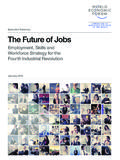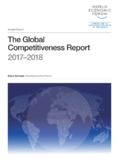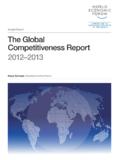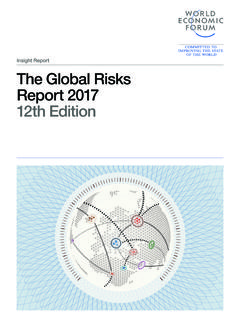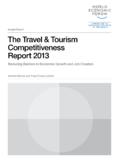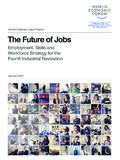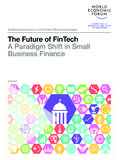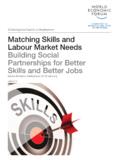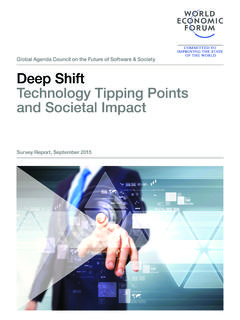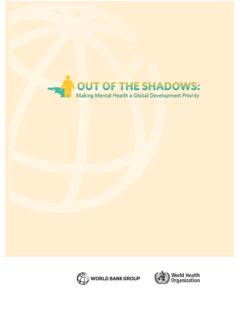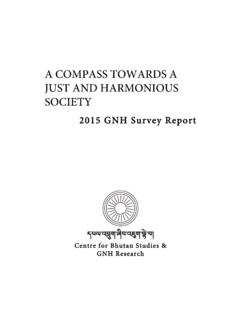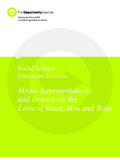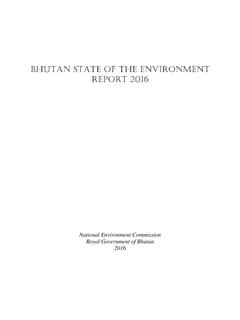Transcription of Industry Agenda Shaping the Future of …
1 Industry Agenda Shaping the Future of construction Inspiring innovators redefine the Industry Prepared in collaboration with The Boston Consulting Group February 2017. Contents 3 Forewords 8 Context and Objectives of the Report 9 Executive Summary 10 Introduction 13 Key Success Factors 19 Policy Recommendations 23 Lighthouse Innovation Cases 25 The Edge 31 New Karolinska Hospital 37 Moladi 43 Burj Khalifa 49 Anglian Water @one Alliance 55 BROAD Sustainable Building 61 MX3D. 67 Aditazz 73 Winsun 79 Uptake 84 Way Forward 88 Contributors 92 Endnotes 93 Bibliography world Economic Forum . 2017 All rights reserved. No part of this publication may be reproduced or transmitted in any form or by any means, including photocopying and recording, or by any information storage and retrieval system. REF 020117. Forewords Foreword from the world Economic Forum In a world confronted with resource shortage, climate change and rapid demographic shifts in emerging and developed countries alike, it is more critical than ever to think about how the built environment can provide a lifestyle that is affordable, sustainable, healthy, peaceful and happy, for as many people as possible.
2 Considering the accelerating urbanization and expansion in the Global South versus the shrinking middle classes in the Global North, and the fact that up to 80%. of our ageing building stock will likely still exist in 2030, we need to be aware that the Future of the Engineering and construction sector is not solely about Industry -specific issues but also, directly and indirectly, about the Future of our built environment, of our communities and, ultimately, of the well-being and happiness of our societies. While most other industries have undergone tremendous changes over the past few decades, and have reaped the benefits of process, product and service innovations, the construction sector has been hesitant to fully embrace the latest innovation opportunities and its labour productivity has stagnated or even decreased over the past 50 years. This mediocre track record can be attributed to various internal and external challenges: the persistent fragmentation of the Industry .
3 Inadequate collaboration between the players; the sector's difficulty in adopting and adapting to new technologies; the difficulties in recruiting a talented and Future -ready workforce; and insufficient knowledge transfer from project to project, to name a few. At the world Economic Forum Annual Meeting 2017 in Davos-Klosters, the Governors of the Infrastructure and Urban Development community gave a strong mandate to continue with the Future of construction initiative to holistically analyse the disruption of the Industry through technological change and its implications on business strategy, skills and organizational design, financing and risk allocation. Since 2015, the initiative has successfully served as a platform for Forum Partners to shape the Agenda of the construction Industry and to find innovative solutions. These insights on innovation will help to accelerate advances in the construction Industry and thereby achieve higher productivity, greater sustainability and enhanced affordability.
4 In 2016, the project aimed to identify and describe 10 Lighthouse innovation cases the basis for the report to extract the key lessons for business and government. The discussions focused on how to address the construction sector's key challenges in the following fundamental areas: 1. Project Delivery Creating certainty to deliver on time and on budget, and improving the productivity of the construction sector 2. Lifecycle Performance Reducing the lifecycle costs of assets and designing for reuse 3. Sustainability Achieving carbon neutral assets and reducing waste during construction 4. Affordability Creating high-quality, affordable infrastructure and housing 5. Disaster Resilience Making infrastructure and buildings resilient against climate change and natural disasters 6. Flexibility, Liveability and Well-being Creating infrastructure and buildings that improve the well-being of end-users This report is the direct result of a collaborative process led by the private sector; in particular, foremost engineering and construction , chemicals, building materials, real estate, urban services and technology firms.
5 In this regard, we would like to thank and acknowledge the Forum's Partner companies that served on this initiative's Steering Committee. We also would like to specially acknowledge John Beck for his restless interest and commitment to serve as the Chair of this initiative, as well as his extended team for their exceptional support. Shaping the Future of construction 3. Furthermore, we would like to thank the many experts, in particular the working group leads from academia who contributed to this report through their leadership on the initiative's advisory committee. The experience, perspective and guidance of all these outstanding individuals and their organizations contributed substantially to a number of remarkable discussions during and following the world Economic Forum Annual Meeting 2017. We hope that through the strategic dialogues led by the Working Groups the construction Industry will come closer to becoming an inherently innovative sector, beginning to doing the impossible and redefining the ultimate frontier: its business models, products and services developed constantly requiring continuous innovation and improvement.
6 Key to the Industry 's success will be that incremental change is not an option. Instead, far-reaching challenges or radical goals needs to be defined that demand leap-frogging or disruptive out-of-the-box solutions and execution. The construction Industry needs to adopt a forward-thinking attitude, something which was nicely exemplified by John F. Kennedy in 1962: We choose to go to the moon in this decade and do the other things, not because they are easy, but because they are hard.. Michael Max B hler Head of Infrastructure and Urban Development Industries Isidora Kosta Community Lead, Infrastructure and Urban Development Industries 4 Shaping the Future of construction Foreword from the Co-Chairs Responsive and Responsible Leadership the theme of the Annual Meeting 2017 in Davos-Klosters reminded participants of their responsibility to serve the public good and their constituents. As a provider of infrastructure and built assets, the construction Industry is at the heart of the global economy and directly affects the quality of our lives.
7 Several global megatrends will further strengthen the Industry 's importance. A new wave of cross-border and rural-urban migration, creating the need for affordable housing and social infrastructure, has put construction at the centre of public debate. Considering the recent push to build and upgrade infrastructure in an affordable way in North America and many other regions around the world , the construction Industry has to step up by improving its productivity, environmental performance and social impact. New technologies such as building information modelling (BIM), 3D printing, wireless sensing and autonomous equipment offer the potential to transform the construction Industry . However, adoption remains low as companies are uncertain about the value proposition of these new technologies and how to implement them in their organizations' strategy. This report, therefore, addresses the challenge of implementation by describing and analysing 10.
8 Lighthouse innovation cases: prominent flagship projects such as the Burj Khalifa, the world 's tallest building, or the most sustainable office building, The Edge, in Amsterdam; and disruptive start-ups and pilot projects, including 3D-printed houses from Chinese company Winsun, design automation start-up Aditazz or Broad Sustainable Building, which applies manufacturing principles to the construction Industry . Their stories serve as a source of inspiration and clearly demonstrate that the digital transformation of the Industry is already happening. The case studies also show vividly the barriers innovators have to overcome, internally and externally. The key success factors identified in this report provide valuable guidance for executives on how to accelerate innovation in the construction ecosystem. Using many examples from the case studies, Industry leaders can trace all the necessary steps to stimulate innovation and turn ideas into reality for the purpose of succeeding in a market of cross sectoral needs.
9 Companies need to drive this Industry transformation. Yet, governments have to play their part, too: As smart regulator, long-term strategic planner and incubator, and finally as forward-looking project owner, policy-makers need to create an enabling environment that turns urban challenges into business opportunities through the adoption of innovative solutions. Effective public-private collaboration is hence required to remove implementation barriers and successfully address the sector's key challenges from improving project delivery to enhancing the flexibility and liveability of the built environment. Going beyond this report, in 2017, the Future of construction project has also successfully fostered cross- Industry collaboration and knowledge sharing an essential precondition for transforming our Industry . Bringing together leaders from Industry , civil society, academia and government, six working groups have developed and shared solutions to address some of the Industry 's most pressing challenges.
10 One recurring topic of the discussions recruiting, retaining and developing young talent will be key for accelerating innovation and is a high priority for everybody involved in the Industry . Therefore, we are delighted that we also managed this year to engage students and young professionals through the project's ideas competition. The submissions not only revealed some fresh ideas for the sector's Future but also showed the high interest of young talent to actively shape the Industry . We are convinced that this engagement and the sharing of ideas and leading practices via the knowledge-sharing platform is important and will continue beyond the project life. Therefore, we invite you to actively engage in the discussion and share your expertise. Shaping the Future of construction 5. We would like to acknowledge and thank all members of the Steering and Advisory Committees as well as the Working Groups for their extraordinary engagement, contribution and continuous support.
